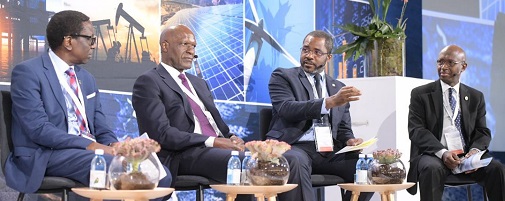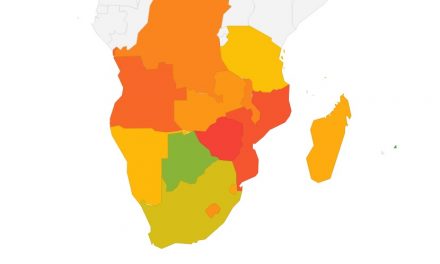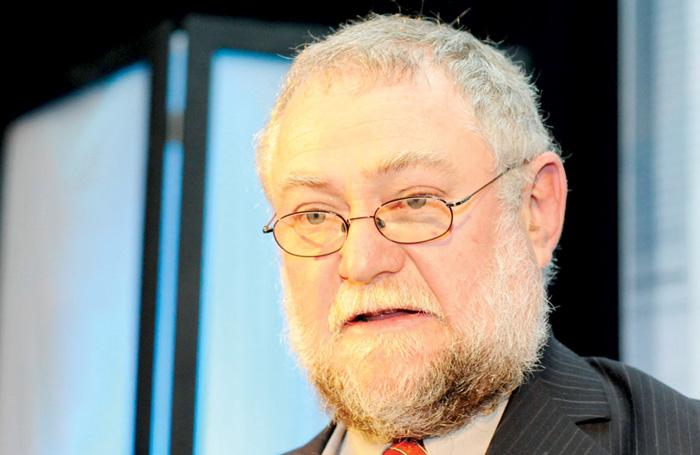
Leveraging the energy mix calls for the enhanced collaboration and accountability

The fourth edition of the Namibia International Energy Conference (NIEC) kicked off on Wednesday 2022, at Droombos Estate in Windhoek, with a firm message that for Namibia and the rest of the continent to realise its energy mix ambitions, there must be mutually beneficial investments, collaboration, accountability and empowerment.
Convened by RichAfrica Consultancy MD, Ndapwilapo Selma Shimutwikeni, the conference is being held under the theme, “The energy mix: positioning for industrialisation, investment and growth”.
The keynote address was delivered by the Minister of Mines and Energy, Hon. Tom Alweendo, who highlighted the need for Africa to end energy poverty by 2030 in order to be positioned for a just transition towards a greener energy mix. For Africa, a just transition means utilising the combination of available fossil fuels and renewable energy sources to alleviate energy poverty, enhance energy supply, create livelihoods for local people, and stimulate economic development to enable the transition to a greener leaning energy mix.
A case in point is Namibia’s commitment to contribute to decarbonise the planet through its renewable green hydrogen project, while encouraging the exploration of the recent light oil and gas discoveries on the Namibian coast earlier this year.
In Africa, around 621 million people do not have access to electricity. The African market poses huge potential for the world’s energy market. Reaching these energy investments cannot be left to chance. The right policies need to be in place, countries have to have strong, functional systems and institutions in place to ensure resources flow towards investment, dynamic permitting systems, agile decision making and have clear and transparent criteria for investors.
Alweendo reflected that the scales of responsibility must be balanced. Creating an attractive and mutually beneficial investment landscape does not only lie with the African countries seeking investment to be legislatively attractive and financially lucrative investment destinations. “Investors need to think about what they need to do to ensure that they establish real partnerships.” This includes investors contemplating what they take out against what they leave behind and adhere to the country’s environmental legislation to ensure the preservation of resources for future generations, he said.
A ministerial panel facilitated by NJ Ayuk, Chairperson of the African Energy Chamber, and comprising ministers Hon. Tom Alweendo; H.E. Gabriel Obiang Lima: Ministry of Mines & Hydrocarbons, Equatorial Guinea; Hon. Peter Chibwe Kapala: Minister of Energy of Zambia; and H.E. Dr Omar Farouk Ebrahim: Secretary-General, African Petroleum Producers Organisation (APPO), also set the tone for Africa’s own investment in its energy mix transition.
The ministerial panel sent a strong message that no country can walk the journey to energy sector development alone. While investment may be required from external investors, Africa should take accountability for aspects of its own empowerment, beyond the external financial investments required.
The APPO’s Dr Ibrahim proposed intra-continental knowledge sharing become a key component of ensuring regional energy development. The APPO also proposed to establish an African energy investment bank to finance efforts to realise energy potential in African countries.
Representing Equatorial Guinea, a country maturing in its energy discoveries and development, Minister Lima echoed Dr Ibrahim’s sentiments, that countries like Namibia which are in the process of establishing their oil exploration discoveries must take ownership of how the utilisation of resources unfolds, learn from other countries, take global lessons and localise them, particularly in defining local content in the energy sector value chain. Minister Kapala extended an invitation for investment in Zambia, where the country is set for exploring investment opportunities, with 80 sites for geothermal which require investment and development.
The conference continued in a similar tone on partnerships and being open for investment, with other speakers like Namibia’s Petroleum Commissioner, Maggy Shino, discussing Namibia’s investment landscape; National Petroleum Corporation of Namibia (NAMCOR) MD, Immanuel Mulunga; Shell Namibia Country Chair, Dennis Zekveld and Deputy Director Africa, TotalEnergies E&P Emmanuelle Tutenuit delving into their investments in Namibia and future plans; and Reconnaissance Energy Africa’s commitment to ESG by its CEO, Scot Evans.
The conference will continue on Thursday, where industry experts, business leaders and thought leaders will continue to deliberate on the future of Africa’s approach to an energy mix that will catalyse industrialisation, investment and growth.















































